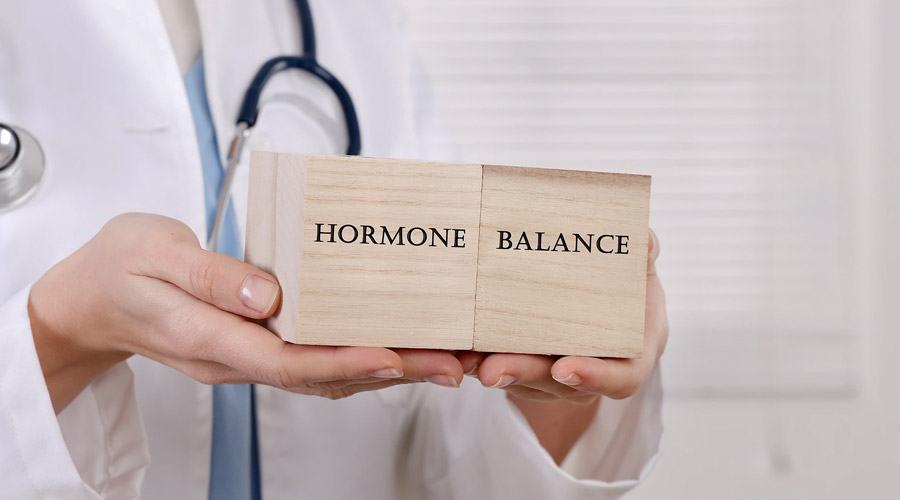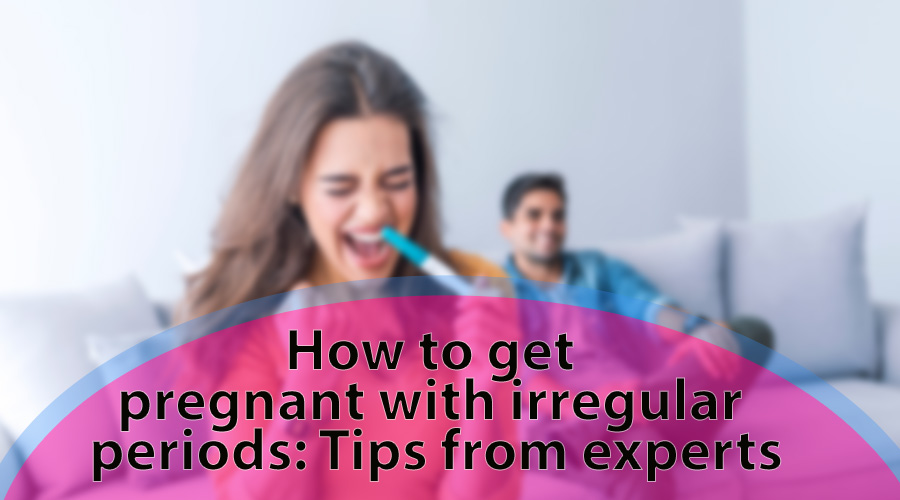If you’re experiencing irregular periods, there are a few things you c an do to try and get pregnant. Experts recommend speaking to your doctor about the best course of action for you based on your individual health situation. Here are some tips to help you get pregnant with irregular periods:
Table of Contents
How to get pregnant with irregular periods

Irregular periods can make it difficult to know when you are most fertile and increase the chances of experiencing an unintended pregnancy. However, there are still things you can do to increase your chances of getting pregnant, even if you have irregular periods. First, keep track of your menstrual cycle.
This will help you to better predict when you are ovulating. You can also use ovulation predictor kits (OPKs) to help determine when you are most fertile. Another thing to keep in mind is that having sex during your fertile window (the time around ovulation) increases your chances of getting pregnant.
If you are trying to get pregnant and have irregular periods, be sure to talk with your doctor about any other steps you can take to increase your chances of success.
Lifestyle changes and supplements to regulate ovulation

There are many different things a woman can do to help regulate her ovulation. Making changes to your lifestyle and taking supplements are two of the most common methods.
There are many different supplements available that are said to help regulate ovulation. Some of the most popular include: chasteberry, fertility blend tea, and vitex agnus castus capsules. It is important to do your research before taking any supplements, as some may not be safe or effective.
Making changes to your lifestyle can also help regulate ovulation. Things you can do include: getting regular exercise, eating a balanced diet, and managing your stress levels. All of these things can help keep your hormones in balance and improve your chances of ovulating regularly.
Causes of irregular cycles

There are many potential causes of irregular menstrual cycles. These can include everything from lifestyle choices to health conditions. Here are some of the most common causes:
Anovulation
Anovulation is a condition where the ovaries do not release an egg, which can result in irregular menstrual cycles. There are many potential causes of anovulation, including hormonal imbalances, problems with the ovaries or egg quality, and lifestyle factors.
If you are experiencing irregular periods and have been unable to conceive despite trying for a year or more, it is important to see your doctor to determine if you are anovulatory. There are treatments available that can help you become pregnant, so don’t hesitate to seek help if you think you may be affected.
Obesity
There are many possible causes of irregular menstrual cycles, one of which is obesity. When a woman is obese, her body produces more of the hormone estrogen than usual. This can upset the delicate balance of hormones that control the menstrual cycle, leading to irregular periods. Additionally, excess weight can also lead to fertility problems.
Primary ovarian insufficiency
Primary ovarian insufficiency (POI) is a condition in which the ovaries stop working before natural menopause. POI can lead to irregular or absent periods, infertility, and hot flashes.
The cause of POI is not always known, but it can be due to genetic factors, autoimmune disorders, or surgery. Treatment for POI usually includes hormone therapy to replace the missing hormones.
Thyroid imbalance
According to the American Thyroid Association, one in eight women will experience a thyroid disorder at some point in their lives. Thyroid imbalance is one of the most common causes of irregular cycles. The thyroid gland is responsible for producing hormones that regulate metabolism.
When the thyroid is not working properly, it can cause a number of problems, including irregular periods. There are a number of things that can cause a thyroid imbalance, including Hashimoto’s disease, an autoimmune condition that attacks the thyroid gland, and iodine deficiency. Treatment for thyroid imbalance usually involves taking medication to restore the balance of hormones.
Underweight
It is not uncommon for women to experience irregular menstrual cycles. While there can be a number of causes for this, one common reason is being underweight. When a woman does not have enough body fat, her body may not produce enough estrogen, which can lead to irregular periods.
Other symptoms of low estrogen levels can include hot flashes, vaginal dryness, and mood changes. Being underweight can also make it more difficult to get pregnant. If you are having trouble getting regular periods or are struggling to conceive, see your doctor to rule out being underweight as a possible cause.
Hyperprolactinemia
Hyperprolactinemia is a condition that is caused by an abnormally high level of the hormone prolactin in the blood. This condition can lead to irregular menstrual cycles, infertility, and other problems.
There are a number of possible causes of hyperprolactinemia, including tumors of the pituitary gland, medications, and certain medical conditions. Treatment for hyperprolactinemia depends on the underlying cause.
Polycystic ovarian syndrome
Polycystic ovarian syndrome (PCOS) is a disorder that affects how the ovaries work. The ovaries produce hormones, including estrogen and progesterone, which control the menstrual cycle. PCOS can cause irregular or missed periods, infertility, and excess hair growth.
The cause of PCOS is unknown, but it may be related to genetics and lifestyle factors such as obesity and lack of exercise. PCOS can also be caused by problems with the way the body processes insulin. Insulin is a hormone that helps the body use sugar (glucose) for energy.
When the body doesn’t process insulin properly, it can lead to high blood sugar levels and insulin resistance. This increases the risk for developing diabetes.
Women with PCOS are also at increased risk for other health problems such as heart disease and stroke.
Medications to help you conceive

Around one-third of couples who are trying to conceive have difficulty doing so. This may be due to a variety of factors, including irregular menstrual cycles. If you are having trouble conceiving, your doctor may prescribe medications to help regulate your cycle and improve your chances of getting pregnant. These medications include:
- Clomid – Clomid is a medication that helps induce ovulation. It is often prescribed to women who have irregular menstrual cycles or problems with ovulation.
- Progesterone – Progesterone is a hormone that helps prepare the uterus for implantation and supports early pregnancy. If you are having trouble maintaining a pregnancy, your doctor may prescribe progesterone supplements.
- Hormone therapy – Hormone therapy involves taking hormones to restore balance in the body.
Detecting ovulation when cycles are irregular

If you are trying to conceive, and your menstrual cycles are irregular, detecting ovulation can be difficult. You may not know when you are most fertile. However, there are some methods that can help you detect ovulation even when your cycles are irregular. One way to do this is by using a basal body temperature (BBT) chart. Your BBT is the lowest temperature of your body during rest.
When you ovulate, your BBT will rise by about half a degree Fahrenheit. You can track your BBT over time to see if it rises after ovulation. Another way to detect ovulation is by using an ovulation predictor kit (OPK). OPKs work by detecting the hormone LH in your urine. LH surges just before ovulation, so if you test for this hormone regularly, you can pinpoint when you are most likely to ovulate.
A better method of conceiving with irregular cycles

A woman’s menstrual cycle can be unpredictable, and this can make it difficult to conceive. However, there is a better method of conceiving which takes into account the irregularity of a woman’s cycle. This method is called natural family planning (NFP).
NFP is a way to track a woman’s fertility by observing changes in her body throughout her menstrual cycle. There are different methods of NFP, but all of them involve tracking cervical mucus and basal body temperature.
By tracking these changes, a woman can determine when she is most fertile and when she is not fertile. NFP can be used to avoid or achieve pregnancy. If you are trying to conceive, using NFP may increase your chances of success. If you are trying to avoid pregnancy, using NFP is more than 99% effective.
Inference
There are a few things that you can do to increase your chances of getting pregnant with irregular periods. First, talk to your doctor about your options. They may be able to prescribe you medication that will help regulate your menstrual cycle.
Second, track your ovulation. There are a number of online tools and apps that can help you do this. Third, have sex frequently when you are most fertile. And finally, don’t stress out about it. Just relax and let nature take its course.
FAQ
What are the symptoms of pregnancy for irregular periods?
If you’re trying to get pregnant and you have irregular periods, there are a few things you need to know about the symptoms of pregnancy. First, it’s important to understand that not everyone experiences the same symptoms during early pregnancy. Some women have no symptoms at all, while others experience very strong signs that they’re pregnant.
That said, there are some common early signs of pregnancy for women with irregular periods. These can include nausea and vomiting, extreme fatigue, changes in breast size or shape, frequent urination, and food cravings or aversions. If you experience any of these symptoms, it’s a good idea to take a pregnancy test to confirm whether or not you’re pregnant.
Can your period be irregular and still get pregnant?
It is possible for a woman to have an irregular period and still get pregnant. In fact, about 30% of women who are trying to conceive have an irregular menstrual cycle. This means that their periods come at different times each month or they go for long periods of time without having a period.
There are many reasons why a woman’s period may be irregular, including stress, diet, and exercise. If you are trying to get pregnant and have an irregular period, there are still some things you can do to increase your chances of conception.
First, track your ovulation using ovulation predictor kits or by tracking your basal body temperature. Second, have sex regularly throughout your cycle. Third, try taking prenatal vitamins or supplements that contain folic acid. Folic acid helps to support a healthy pregnancy.
What do irregular periods mean for pregnancy?
For most women, periods are relatively regular. However, for some women, their periods can be quite irregular. This can be a problem when trying to become pregnant, as irregular periods can make it difficult to know when you’re ovulating.
There are a few things that can cause irregular periods. One common cause is Polycystic Ovarian Syndrome (PCOS), which is a condition that affects how the ovaries work. PCOS can cause irregular or absent periods, as well as other symptoms like acne and excess hair growth.
If you’re having trouble getting pregnant and you have irregular periods, it’s important to see your doctor. They can help determine the cause of your irregularities and suggest possible treatments. Depending on the cause, there may be things you can do to help regulate your period and improve your chances of getting pregnant.
Can I get pregnant with PCOS and no periods?
Yes, you can get pregnant with PCOS and no periods. PCOS is a common hormone disorder that can interfere with ovulation and periods. However, many women with PCOS do still ovulate and can get pregnant.
If you are trying to conceive and have been having trouble because you don’t have periods, speak to your doctor about your options. There are treatments available that can help you ovulate and conceive.
Can I get pregnant naturally with PCOS?
There is no one definitive answer to this question. Each woman’s body is different and will respond differently to various treatments. Some women with PCOS are able to get pregnant naturally, while others require medical intervention in order to conceive.
If you are trying to get pregnant and have PCOS, it is important to talk to your doctor about the best course of action for you. There are a number of treatments available for PCOS, and your doctor will be able to recommend the best option for you.
